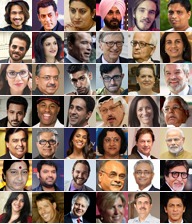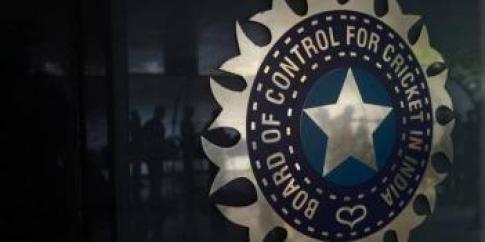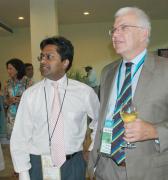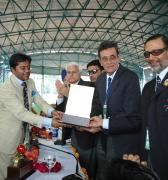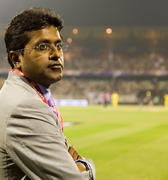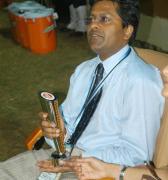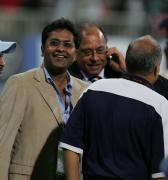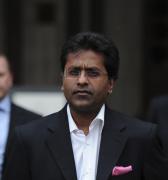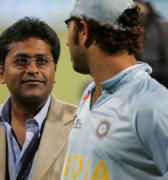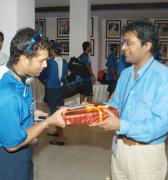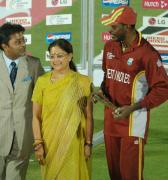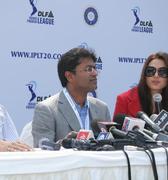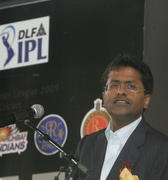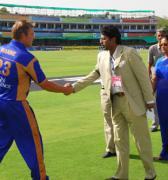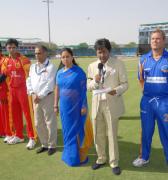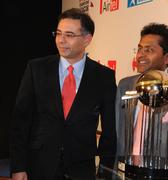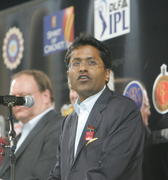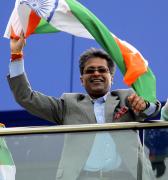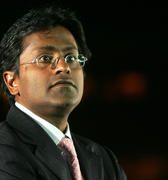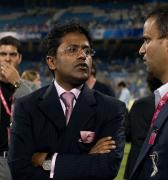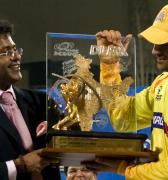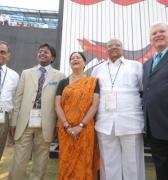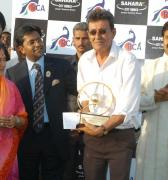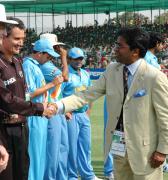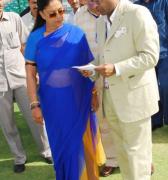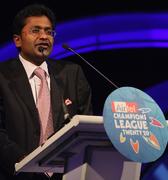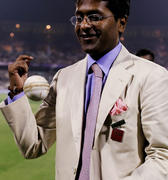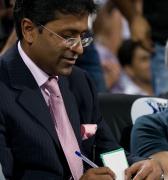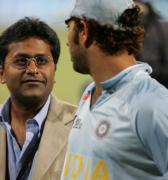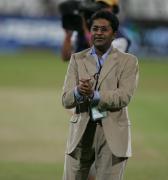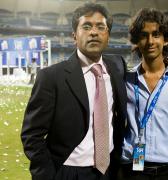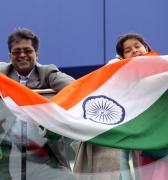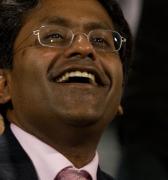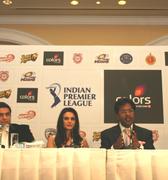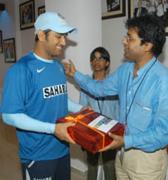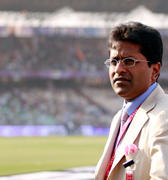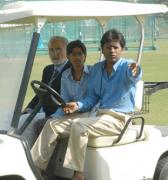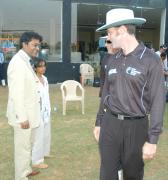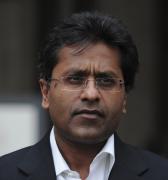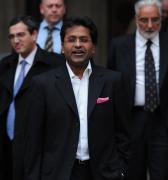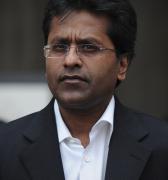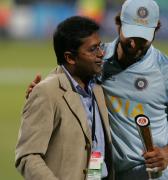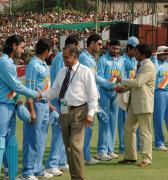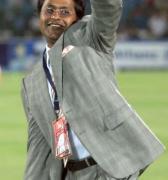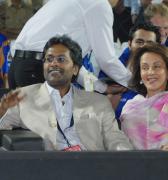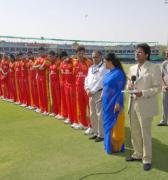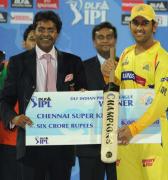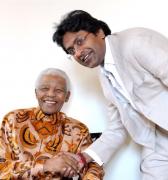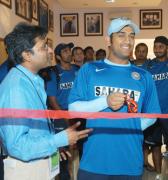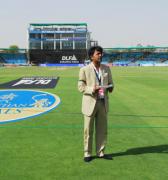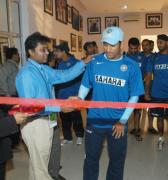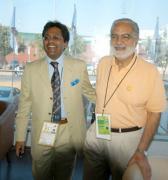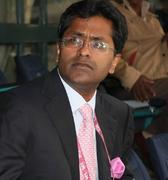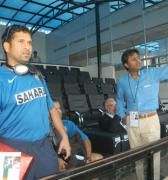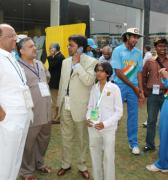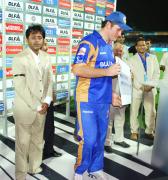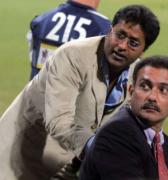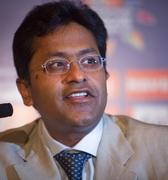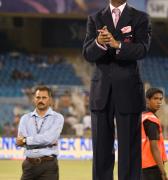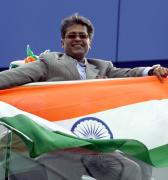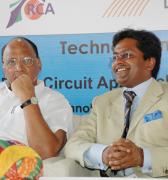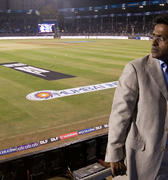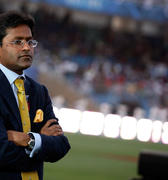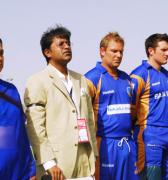Crisis looms for Indian sports if BCCI stays out of anti-dope pact
World Anti-Doping Agency (Wada) has sought drug-testing of Indian cricketers by the National Anti Doping Agency (Nada)
The continued refusal of Indian cricketers to submit themselves to the drug testing regimen that all global athletes follow is threatening to snowball into a major crisis for Indian sports.
World Anti-Doping Agency (Wada) has asked the International Cricket Council (ICC) to direct the Indian cricket board, BCCI, to allow drug-testing of Indian cricketers by the National AntiDoping Agency (Nada). Failing this, it has warned, Nada could lose its accreditation with Wada. The threat, which could create a crisis for all Indian sports, came in a Wada letter addressed to sports minister Rajyavardhan Singh Rathore. If Nada loses its compliance with the Wada Code, it could affect Indian sport's fight against doping and also negatively impact its participation in global sports. This is because India would then be left with no Wada-accredited agency to test its athletes.
The world body sought sports ministry's "urgent assistance" in "addressing the anti-doping issue with BCCI and ensuring Nada can implement the anti-doping programme in cricket with full cooperation of BCCI". Without this cooperation, India's Nada may risk its compliance with the Wada Code as its testing programme will not be fully effective," the letter written by Wada's director general Olivier Niggli warned. "We are following up with the ICC for assistance in addressing this issue. It's our understanding that Nada's anti-doping rules give it full jurisdiction and authority over all sports in India," Niggli added.
The Wada Code is the core document that harmonises anti-doping policies, rules and regulations within sport organisations and among public authorities around the world. The Code was first adopted in 2003, took effect in 2004, and was then amended on January 1, 2009.
The need for Wada's intervention arose after the world body conducted an audit of Nada's anti-doping programme in April this year and found that BCCI neither recognises the authority of Nada nor does it permit the Wada-affiliated body to implement any anti-doping regime in cricket.
Rathore, it is learnt, acted swiftly after Niggli's letter, directing former sports secretary Injeti Srinivas - who was then at the helm before being transferred to the corporate affairs ministry -to take up the matter with BCCI officials.
"Nada's anti-doping rules, which were approved by the Cabinet, give it full jurisdiction and authority to implement the anti-doping measures with respect to all sports in India, including cricket," Srinivas wrote to Committee of Administrators' (CoA) chairman Vinod Rai and BCCI CEO Rahul Johri earlier this month. "Therefore, kindly intervene and facilitate Nada to implement the anti-doping programme with respect to cricket in India with full cooperation of the BCCI. In the absence of this, Nada may run the risk of becoming non-compliant with the Wada Code. With your (Rai's) support, we can rectify the present situation arising out of BCCI's non-cooperation and help Nada become fully compliant of the Wada Code," Srinivas wrote.
When contacted, Nada DG Navin Agarwal said: "Wada is very serious about dope testing in Indian cricket this time around. That's why they have taken up the matter with the ministry , which, in turn, has written to Mr Rai."
A source in the know of the development told TOI that Wada could pressurise ICC to impose sanctions on BCCI.
"There are two things to understand. One, BCCI is not a private entity...it's a public body discharging public functions as ordered by the Supreme Court. Also, the ICC is the parent body of the BCCI. After ICC became a Wada signatory in 2006, Nada sees no reason behind BCCI's objection to becoming its signatory. If BCCI does not act this time, it could find itself in serious trouble," the source added.
Over the past few months, BCCI has been ignoring the ministry and Nada's communications in this regard.
BCCI's primary objection is to Wada's "whereabouts" clause, which allows for the out-of-competition testing of cricketers. They aren't comfortable sharing their whereabouts -they have to provide details of where they can contacted for a one-hour window every day -when not playing competitively, citing infringement of privacy and security issues.
BCCI, on its part, has engaged a private dope testing agency - International Dope Tests and Management (IDTM) - for collecting cricketers' blood and urine samples. For the record, IDTM isn't recognised by Nada.
The continued refusal of Indian cricketers to submit themselves to the drug testing regimen that all global athletes follow is threatening to snowball into a major crisis for Indian sports.World Anti-Doping Agency (Wada) has asked the International Cricket Council (ICC) to direct the Indian cricket board, BCCI, to allow drug-testing of Indian cricketers by the National AntiDoping Agency (Nada).
Failing this, it has warned, Nada could lose its accreditation with Wada. The threat, which could create a crisis for all Indian sports, came in a Wada letter addressed to sports minister Rajyavardhan Singh Rathore. If Nada loses its compliance with the Wada Code, it could affect Indian sport's fight against doping and also negatively impact its participation in global sports.
This is because India would then be left with no Wada-accredited agency to test its athletes.The world body sought sports ministry's "urgent assistance" in "addressing the anti-doping issue with BCCI and ensuring Nada can implement the anti-doping programme in cricket with full cooperation of BCCI". Without this cooperation, India's Nada may risk its compliance with the Wada Code as its testing programme will not be fully effective," the letter written by Wada's director general Olivier Niggli warned. "We are following up with the ICC for assistance in addressing this issue. It's our understanding that Nada's anti-doping rules give it full jurisdiction and authority over all sports in India," Niggli added.The Wada Code is the core document that harmonises anti-doping policies, rules and regulations within sport organisations and among public authorities around the world. The Code was first adopted in 2003, took effect in 2004, and was then amended on January 1, 2009.
The need for Wada's intervention arose after the world body conducted an audit of Nada's anti-doping programme in April this year and found that BCCI neither recognises the authority of Nada nor does it permit the Wada-affiliated body to implement any anti-doping regime in cricket.Rathore, it is learnt, acted swiftly after Niggli's letter, directing former sports secretary Injeti Srinivas - who was then at the helm before being transferred to the corporate affairs ministry -to take up the matter with BCCI officials."Nada's anti-doping rules, which were approved by the Cabinet, give it full jurisdiction and authority to implement the anti-doping measures with respect to all sports in India, including cricket," Srinivas wrote to Committee of Administrators' (CoA) chairman Vinod Rai and BCCI CEO Rahul Johri earlier this month.
"Therefore, kindly intervene and facilitate Nada to implement the anti-doping programme with respect to cricket in India with full cooperation of the BCCI. In the absence of this, Nada may run the risk of becoming non-compliant with the Wada Code. With your (Rai's) support, we can rectify the present situation arising out of BCCI's non-cooperation and help Nada become fully compliant of the Wada Code," Srinivas wrote.When contacted, Nada DG Navin Agarwal said: "Wada is very serious about dope testing in Indian cricket this time around. That's why they have taken up the matter with the ministry , which, in turn, has written to Mr Rai."A source in the know of the development told TOI that Wada could pressurise ICC to impose sanctions on BCCI."There are two things to understand. One, BCCI is not a private entity...it's a public body discharging public functions as ordered by the Supreme Court. Also, the ICC is the parent body of the BCCI. After ICC became a Wada signatory in 2006, Nada sees no reason behind BCCI's objection to becoming its signatory. If BCCI does not act this time, it could find itself in serious trouble," the source added.
Over the past few months, BCCI has been ignoring the ministry and Nada's communications in this regard.BCCI's primary objection is to Wada's "whereabouts" clause, which allows for the out-of-competition testing of cricketers. They aren't comfortable sharing their whereabouts -they have to provide details of where they can contacted for a one-hour window every day -when not playing competitively, citing infringement of privacy and security issues.
BCCI, on its part, has engaged a private dope testing agency - International Dope Tests and Management (IDTM) - for collecting cricketers' blood and urine samples. For the record, IDTM isn't recognised by Nada.
(Courtesy: The Times of India)




